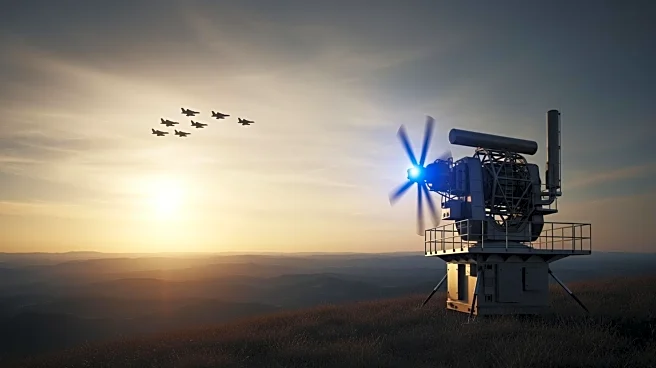What's Happening?
NATO is currently evaluating its air defense strategies in response to increasing threats from Russia, particularly concerning drone incursions. The alliance has introduced the Eastern Sentry program,
which involves repositioning warplanes and air defense systems to frontline countries. However, there is ongoing debate about the limitations imposed by 'national caveats,' which restrict the Supreme Allied Commander Europe, U.S. Gen. Alexus Grynkewich, from deploying forces effectively. U.S. Ambassador to NATO Matthew Whitaker has emphasized the need for reducing these caveats to enhance NATO's response capabilities. Additionally, NATO allies are expected to announce significant spending pledges for Ukrainian weapons purchases from the U.S.
Why It's Important?
The adjustments in NATO's air defense strategy are crucial as they aim to address the growing security concerns posed by Russia. The ability of NATO to respond swiftly to aerial threats is vital for maintaining regional stability and protecting member states. The discussions around national caveats highlight the complexities of multinational military cooperation and the need for streamlined decision-making processes. The anticipated spending pledges for Ukrainian weapons signify continued support for Ukraine amidst ongoing conflicts, potentially influencing geopolitical dynamics in the region.
What's Next?
NATO is likely to continue discussions on reducing national caveats to enhance operational flexibility. The alliance may also focus on further strengthening its air defense systems and capabilities. The upcoming announcements regarding Ukrainian weapons purchases could lead to increased military aid and support for Ukraine, impacting the ongoing conflict with Russia. Stakeholders, including political leaders and defense agencies, will be closely monitoring these developments.
Beyond the Headlines
The debate over national caveats raises questions about the balance between national sovereignty and collective security within NATO. The alliance's ability to adapt to new threats and coordinate effectively among member states is crucial for its long-term viability. The focus on air defense also underscores the evolving nature of warfare, with drones and other technologies playing a significant role in modern conflicts.









